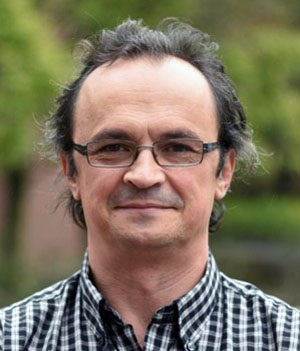Professor Alexander Laskin

Professor — Analytical Chemistry
Email: alaskin@purdue.edu
Phone: 765-494-5243
Office: BRWN 5131B
Professor Laskin's CV (PDF)
Bio
Dr. A. Laskin obtained his Ph.D. degree in 1998 from The Hebrew University of Jerusalem, Israel, where he studied the kinetics and mechanisms of the high temperature pyrolysis of aromatic compounds. He then spent a 1999 year as a postdoctoral researcher at the University of Delaware and Princeton University (joint position) where he worked on different aspects of combustion chemistry. In August 1999, Dr. Laskin joined the staff at Pacific Northwest National Laboratory (PNNL) as a post-doctoral researcher responsible for the design and development of novel collection and analytical methods for chemical characterization of atmospheric aerosols and gas-particle interactions. He assumed the permanent position of a staff Scientist II at PNNL in 2001 and then was promoted to the levels of Scientist III, IV and V. In 2017, Dr. A. Laskin joined Department of Chemistry at Purdue University as a full Professor.
The research activities Dr. A. Laskin are focused on analytical and physical chemistry of aerosols. His group investigates changes in chemical and physical properties of particles as they evolve due to their multi-phase reaction chemistry in laboratory and field experiments. Comprehensive characterization of particles using an array of complementary analytical techniques is essential to understand origin, fate and environmental impacts or particles. Research findings of his group obtained in laboratory and field studies are relevant to a number of issues related to atmospheric chemistry of sea salt, mineral dust, soot, SOA and biomass burning particles.
Present and past research interests of Dr. Laskin include:
- Environmental impact of aerosols;
- Physical chemistry of gas-particle interactions;
- Novel methods of aerosol collection and measurement;
- Single-particle and molecular-level analyses of aerosols;
- Source apportionment of aerosols;
- Combustion related aerosols;
- Combustion chemistry and chemical kinetics.
